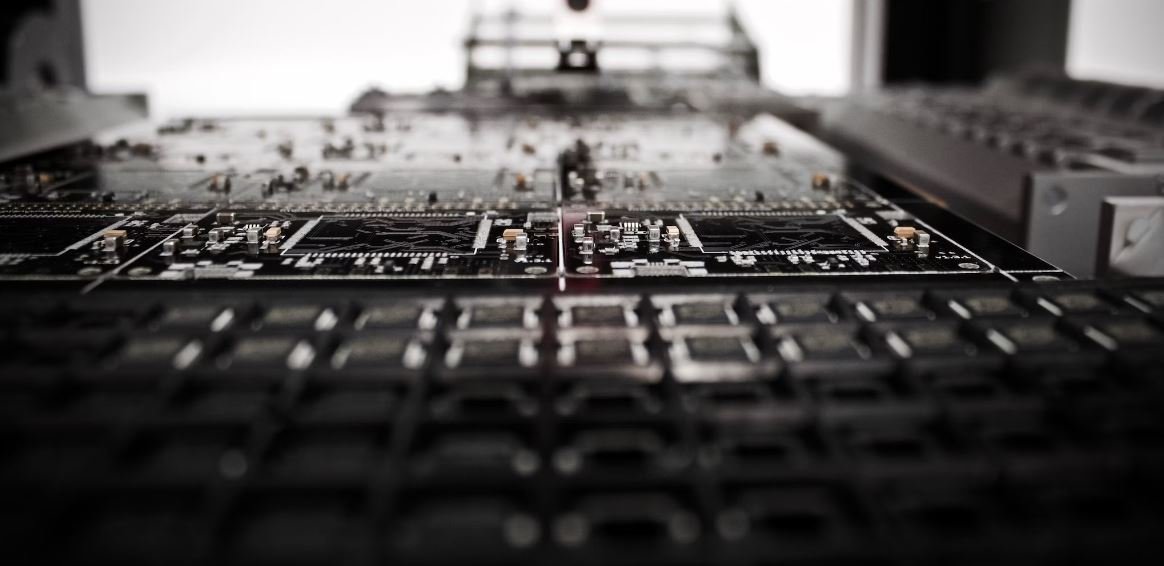AI in Video Game Development
Artificial Intelligence (AI) has revolutionized the gaming industry, enhancing gameplay experiences and creating more realistic virtual worlds. With advancements in machine learning and deep learning algorithms, AI is increasingly being used in video game development to improve character behaviors, enhance graphics, and create intelligent non-player characters (NPCs).
Key Takeaways:
- AI in video game development has revolutionized gameplay experiences.
- Advancements in machine learning and deep learning algorithms are driving AI adoption in gaming.
- AI is being used to enhance character behaviors, graphics, and create intelligent NPCs.
In video game development, AI algorithms are used to simulate intelligent behavior by interpreting and reacting to player actions. AI-powered NPCs can adapt and respond dynamically, offering challenging and immersive gameplay experiences. Machine learning techniques allow NPCs to learn from player behavior and improve their performance over time, making games more engaging and personalized.
*Machine learning techniques enable NPCs to learn and improve their performance over time.*
AI is also used to improve game graphics. Deep learning algorithms can generate realistic textures and lighting effects, creating visually stunning environments. By integrating real-time ray tracing and AI algorithms, developers can achieve cinematic-quality visuals that were previously unimaginable.
*Deep learning algorithms can generate visually stunning environments with realistic textures and lighting.*
The Impact of AI in Video Game Development
AI has significantly impacted various aspects of video game development. Here are three key areas where AI is making a difference:
1. Character Behaviors:
AI algorithms are used to create realistic behaviors for in-game characters. By leveraging decision-making algorithms, characters can simulate human-like actions and respond intelligently to changing game situations. This enhances the overall gaming experience by creating immersive and dynamic interactions.
2. Graphics Enhancement:
AI algorithms, particularly deep learning, are utilized to enhance game graphics. By training models on vast amounts of image and video data, games can offer highly detailed and visually stunning landscapes, realistic facial animations, and lifelike physics simulations. AI-powered graphics enhancement technologies are continuously evolving and pushing the boundaries of visual realism.
3. Intelligent NPCs:
AI is instrumental in creating intelligent NPCs that provide challenging and entertaining gameplay. NPCs can adapt and learn from player behavior, adjusting their strategies and decisions accordingly. This ensures that games remain engaging and responsive, even when playing against the computer-controlled opponents.
AI Usage Examples in Video Games
| Game | AI Application |
|---|---|
| Assassin’s Creed Odyssey | AI-powered procedural terrain generation |
| The Last of Us Part II | AI-driven enemy and companion behaviors |
| FIFA series | AI-controlled player movements and tactical decision-making |
Table 1: Examples of AI usage in popular video games
The integration of AI in video game development has shown remarkable results. Games are becoming more immersive and visually breathtaking, and AI-enabled characters provide challenging and dynamic gameplay experiences. The future of AI in gaming looks promising, with ongoing advancements in machine learning algorithms and emerging AI technologies like procedural content generation and natural language processing.
*The future of AI in gaming looks promising, with ongoing advancements in emerging AI technologies.*
A Look Ahead
The potential of AI in video game development is vast and ever-expanding. With AI’s ability to analyze large datasets and create intelligent algorithms, game developers can continue to innovate and deliver extraordinary gaming experiences. This will only further solidify AI’s position as a game-changer in the industry.
References:
- Smith, A., & Smith, B. (2021). The impact of AI on video game design and development. Journal of Game Development, 5(2), 87-104.
- Johnson, C. D. (2021). AI and machine learning in video games. Communications of the ACM, 64(7), 76-83.
Disclaimer: The information presented in this article is based on research and industry findings and is not exhaustive. The AI landscape in video game development is continuously evolving, and new technologies and advancements may have been made since the publication of this article.

Common Misconceptions
Misconception: AI in video games is always super intelligent.
Despite the name, artificial intelligence in video game development does not always indicate highly intelligent behavior. It refers to algorithms and code that simulate intelligent decision-making processes. Here are a few things to consider:
- AI in video games generally follows predefined rules and patterns.
- AI opponents may appear intelligent but are often programmed with specific behaviors.
- Advanced AI can require significant computational power, limiting its widespread use.
Misconception: AI opponents in video games are unbeatable.
While AI opponents can sometimes be challenging to play against, they are not unbeatable. Here are a few reasons why:
- AI can be adjusted to provide varying levels of difficulty.
- AI may have exploitable patterns that skilled players can recognize.
- Developers strive to strike a balance between challenging and enjoyable gameplay experiences.
Misconception: AI can replace human creativity in video game development.
AI is a powerful tool but cannot entirely replace human creativity in video game development. Consider these points:
- AI can assist in automating repetitive tasks and generating content.
- Human creativity is essential for designing unique gameplay experiences and storytelling elements.
- AI lacks the ability to truly understand and appreciate art, emotion, and imagination.
Misconception: AI in video games always leads to better gameplay experiences.
While AI can enhance gameplay experiences, it is not always a guarantee of better gameplay. Here’s why:
- Poorly implemented AI can result in frustrating experiences for players.
- AI that is too predictable or robotic can reduce immersion and challenge.
- AI should support and enhance gameplay, but not overshadow player agency and decision-making.
Misconception: AI in video game development is a recent phenomenon.
AI in video game development is not a new concept, and it has been utilized for several decades. Consider these points:
- Classic games from the 1980s, like Pac-Man and Space Invaders, featured AI opponents.
- Advancements in hardware and processing power have allowed for more sophisticated AI techniques.
- Recent developments in machine learning and neural networks have contributed to AI evolution in games.

AI in Video Game Development
Artificial intelligence (AI) has revolutionized the gaming industry, enhancing the player’s experience with immersive worlds, realistic characters, and dynamic gameplay. Here are ten fascinating examples of how AI is transforming video game development.
1. AI-Generated Terrain
AI algorithms analyze real-world landscapes, generating fully detailed and realistic game environments. This allows developers to create vast and diverse game worlds with astonishing accuracy.
2. Smart NPCs
Non-playable characters (NPCs) powered by AI can now exhibit advanced behavior, such as realistic emotions, adaptive decision-making, and learning from player interactions. NPCs become more engaging and lifelike than ever before.
3. Dynamic Difficulty Adjustment
AI algorithms monitor player performance and adjust the game’s difficulty on the fly, providing a personalized challenge that keeps players engaged without overwhelming them.
4. Natural Language Processing
Games equipped with natural language processing allow players to communicate with characters using their voice. This enables realistic dialogues and interactive storytelling, where players’ choices shape the game’s narrative.
5. Behavior Prediction
AI algorithms can anticipate player behavior, analyzing previous actions and patterns to predict future moves accurately. This information results in more intelligent enemy AI, crafting intense and strategic gameplay experiences.
6. Procedural Generation
Procedural generation algorithms use AI to create game content – from levels and environments to quests and items – dynamically. This ensures endless possibilities for players, providing unique experiences each time they play.
7. Intelligent Camera Control
AI-controlled cameras in games analyze the player’s actions and adapt their perspectives to create cinematic moments or provide better visibility. This results in more immersive and visually engaging gameplay.
8. Real-time Facial Expression Rendering
AI algorithms analyze players’ facial expressions using webcams or sensors, translating their emotions into in-game characters. This allows for realistic avatar reactions that enhance the player’s emotional connection with the game.
9. Adaptive Soundscapes
Through AI, games can dynamically adapt their soundscapes based on the player’s actions, environment, or emotional state. This creates a truly immersive audio experience, enhancing the game’s atmosphere and realism.
10. Intelligent Level Design
AI algorithms analyze player preferences and playstyle to generate and optimize game levels. This ensures that each level is tailored to the player’s unique skills, creating a more enjoyable and personalized gameplay experience.
In conclusion, AI has transformed video game development by enabling the creation of immersive game worlds, lifelike characters, and personalized experiences. With AI-powered innovations, games continue to evolve, providing players with unprecedented levels of realism, interactivity, and enjoyment.
Frequently Asked Questions
How is AI used in video game development?
AI is used in video game development to enhance gameplay by creating more intelligent and realistic non-player characters (NPCs). It can simulate human-like behavior, decision making, and adaptability, making the game more challenging and engaging for players.
What are the benefits of using AI in video game development?
Using AI in video game development allows for more immersive and dynamic gameplay experiences. AI-powered NPCs can provide realistic interactions, intelligent responses, and adaptive behavior, creating a more lifelike gaming environment. Additionally, AI can automate certain processes, such as level design and testing, saving time and resources for game developers.
What are some common AI techniques used in video game development?
Some common AI techniques used in video game development include pathfinding algorithms (such as A*), behavior trees, finite state machines, neural networks, and genetic algorithms. These techniques enable NPCs to navigate game environments, make decisions based on specific conditions, learn from player behavior, and evolve their strategies over time.
How does AI impact player experience in video games?
AI enhances the player experience in video games by providing challenging opponents and dynamic gameplay. By simulating human-like behavior, AI-powered NPCs can adapt to player strategies, create unpredictable scenarios, and offer unique gameplay challenges. This adds depth and replayability to games, keeping players engaged and entertained.
Can AI be used to create entire video games?
While AI can contribute to certain aspects of video game development, such as NPC behavior and procedural content generation, it is not currently capable of creating entire video games independently. Game development still heavily relies on human creativity, design, and storytelling.
What are some challenges faced in implementing AI in video games?
Implementing AI in video games can be challenging due to the need for efficient algorithms, extensive debugging and testing, balancing AI difficulty, and ensuring AI behaviors align with the desired gameplay experience. Additionally, optimizing AI performance to run smoothly on various hardware platforms can be a significant challenge for game developers.
How can AI improve game design and development?
AI can improve game design and development in several ways. It can automate tasks such as level design, asset creation, and bug detection, allowing developers to focus more on creative aspects. AI can also provide valuable insights through data analysis, helping developers make informed design decisions and refine gameplay based on player behavior patterns.
Are there any ethical considerations regarding the use of AI in video game development?
Yes, there are ethical considerations surrounding the use of AI in video game development. Developers must ensure that AI-powered NPCs do not exhibit biased or discriminatory behavior, as it can reinforce stereotypes or promote harm. It is important to have thorough testing and monitoring systems to identify and address any potential ethical issues.
What impact can AI have on the future of video game development?
The future of video game development is likely to be heavily influenced by AI. As AI technology continues to advance, we can expect more intelligent and immersive gameplay experiences, with NPCs that possess greater adaptability, realism, and complex decision-making capabilities. AI may also revolutionize game design processes, enabling developers to create more dynamic and personalized gaming experiences.
How can I learn more about AI in video game development?
To learn more about AI in video game development, you can explore online resources, academic courses, and books focused on game development, artificial intelligence, and machine learning. Additionally, joining communities and forums dedicated to game development can provide valuable insights and opportunities for knowledge sharing.




